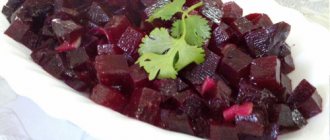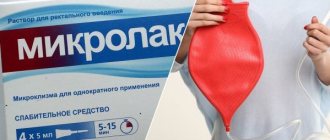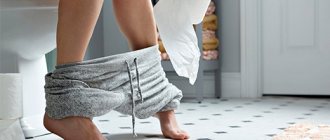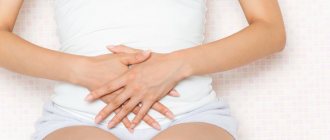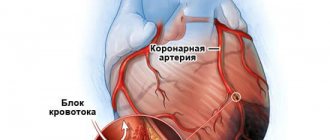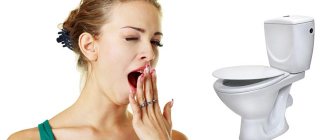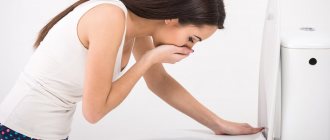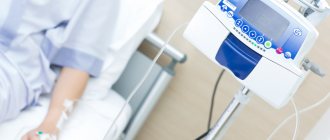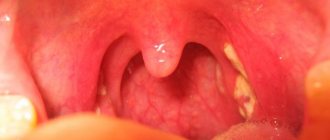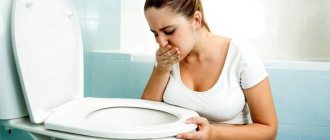Abdominal pain after defecation is not a specific symptom, that is, it is simply impossible to make a diagnosis based on such a complaint alone. Difficulties in diagnosis may also be due to the fact that a pain outbreak can radiate to different places, which is why the patient begins to incorrectly describe his complaints.
Painful sensations can be caused by diseases of the intestines, bladder, reproductive system or spine. In making an accurate diagnosis, it is extremely important to find out the nature of the pain, as well as the accompanying symptoms.
Pain in the lower abdomen during defecation can be of various types: pulling, cutting, acute, continuous, paroxysmal, prolonged. Soreness occurs in the center or lower abdomen, on the sides, or even in the anorectal area.
Do you have hemorrhoids?
There are two types of hemorrhoids: internal and external. “A hemorrhoid is essentially a vein that sits inside the rectum and dilates,” explains Dr. De Latour, a gastroenterologist and assistant professor of medicine at NYU Langone Health. Although internal and external hemorrhoids can occur for many reasons, the most common are weight gain and pregnancy, which lead to increased pressure and tension over the vein. “When pressure increases in this area, the thin-walled veins around the rectum dilate,” says De Latour. She notes that internal hemorrhoids should not be painful, although they may bleed, but external hemorrhoids, on the contrary, are itchy and painful.
The key to preventing hemorrhoids is maintaining a healthy weight, avoiding rapid weight gain, and including plenty of fiber in your diet. The good news is that hemorrhoids are not usually a serious or dangerous condition, and modern creams can help treat symptoms.
Smooth armpits without shaving: ways to remove hair using conventional products
“Olga” from the series of the same name: the tragic fate of actress Yana Troyanova
Seven daily habits of happy people
Proctitis and paraproctitis
Proctitis is an inflammatory process in the mucous membrane of the rectum, which is accompanied by intense pain. There is a violation of stool consistency towards diarrhea. There is mucus in the stool and there may be streaks of blood.
The disease is caused by pathogenic or opportunistic bacteria, so the basis of diagnosis is identifying the pathogen and conducting an antibiotic sensitivity test.
Paraproctitis is often a complication of proctitis and is characterized by an inflammatory process in the perirectal tissue. The process in this area easily becomes chronic, forming fistula tracts that require immediate surgical treatment.
Paraproctitis is characterized by a more vivid clinical picture, including fever, intense abdominal pain in the rectal area. When defecating, the pain intensifies.
Do you have a fissure in your anus?
A fissure is a break in the skin of the anus. Such cracks can occur after local trauma, for example, from childbirth or improper administration of an enema.
You'll know you have a fissure if you experience pain during or after bowel movements, or if you see bright red blood accompanying your stool or visible on toilet paper. The injury can also be seen by a doctor or a very close person whom you trust.
The best way to prevent fissures is to eat plenty of fiber so you have regular, easy bowel movements. Fiber is sold in pharmacies, but it is best to consume natural products, for example, increase the amount of fresh salads you consume.
Causes of pain
Pain in the anus after defecation has different origins, most causes are associated with pathology in the rectum itself:
- In first place in terms of the frequency of pain is hemorrhoids, and in the early stages it is mild and is associated with concomitant constipation and difficulty passing hard feces. Sharp pain and burning in the anus begin with a complicated form of the disease, after the development of thrombosis and inflammation of the hemorrhoids.
- An anal fissure is a linear or triangular defect that occurs in the mucous layer of the rectum or anus as a result of trauma, damage from hard feces or a foreign object. Characteristic symptoms of a fissure are sharp, burning pain during and after defecation, discharge of scarlet blood and spasm of the anal sphincter. The severity of pain with an acute fissure is superior to that of hemorrhoids.
- Sphincteritis is an inflammation of the anal sphincter, rarely isolated, more often accompanied by hemorrhoids, fissure or proctitis.
- Paraproctitis of various localization is an abscess in the submucosal layer of the rectum or under the skin near the anus. Both forms can develop as infectious complications of previous diseases and are characterized by symptoms of general intoxication - fever, chills, headache and muscle pain, weakness. A painful swelling can be felt in the subcutaneous layer near the anus or in the thickness of the intestinal wall. Pain in the anus is throbbing, intense, and intensifies after bowel movement.
- Rectal fistulas are a continuation of paraproctitis if left untreated and can open spontaneously. When the fistula is closed and pus accumulates, pain occurs in the anus after defecation.
- Colon cancer - with this severe pathology, pain is not an early prognostic sign, but appears in the later stages of tumor growth. First, the patient experiences blood, mucus or pus in the stool; pain may occur during and after defecation; as the tumor grows, the pain becomes constant and radiates to the perineum, genitals, and lumbar spine.
- Traumatic damage to the anus by a foreign object, as a result of an accident or unconventional sex.
- Severe bruise of the tailbone or perineum due to a fall.
- Rectal prolapse – occurs in older women or women who have given birth many times due to muscle atrophy.
- Sexually transmitted diseases (ulcers, condylomas) - inflammation spreads from nearby genital organs in women.
- Spasms of the muscles of the perineum - occur in adolescents during bowel movements at night, disappear with age.
- Narrowing of the anal canal - after surgery for hemorrhoids or fissures.
You are constipated
Constipation is most often caused by poor diet: either you don't eat enough fiber, or you don't drink enough water and are dehydrated. “If you're dehydrated, the colon will suck all the water out of the stool it produces,” says De Latour. “You will end up with a heavy, painful bowel movement.” And when this happens, it can put stress on the muscles in the pelvic area, leading to pain. Again, says De Latour, the solution is fiber. Medicines can help, the doctor says, but they are not a long-term solution.
25 children of a childless man: an extraordinary reunion
The newlyweds traveled all over the world and took wedding photos in every country
Paralympian Talay without arms and legs: “the harder the fight, the greater the victory”
When is specialist help needed?
It is recommended to consult a doctor in situations where, in addition to pain in the abdominal area after bowel movement, the following alarming symptoms are observed:
- frequent constipation;
- diarrhea, periodically alternating with constipation;
- sudden weight loss;
- strong, pronounced pain syndrome;
- the appearance of bloody impurities in the stool;
- a feeling of incomplete bowel movement after completing a bowel movement.
Only the attending physician can make an accurate diagnosis and determine the necessary therapeutic course after a preliminary diagnostic examination.
You have proctitis
Proctitis is a scary-sounding word for an inflamed rectum. The condition may be caused by ulcerative colitis or Crohn's disease (inflammatory bowel disease), sexually transmitted diseases such as syphilis and chlamydia, or inflammation caused by an enema to which you reacted poorly.
“For inflammatory bowel disease, we can treat it with anti-inflammatory drugs,” explains the doctor. “But if you have an infection, we need to treat the infection itself, often with antibiotics.”
Diagnosis and treatment
If it becomes painful to go to the toilet, you should immediately consult a proctologist who will conduct all the necessary studies and prescribe treatment.
- A digital rectal examination is performed by a proctologist to examine the structures of the rectum. The doctor can detect enlarged veins and tumors.
- A clinical analysis of stool evaluates its consistency, the presence of undigested food debris, color, and smell.
- Examination of stool for occult blood allows for early diagnosis of cancer.
- Colonoscopy is an instrumental research method that allows you to assess the condition of the intestinal mucosa. The procedure is performed under anesthesia using special equipment. During colonoscopy, it is possible to take material for a biopsy for the purpose of a deeper histological study of the affected area of the organ.
- Sigmoidoscopy is an instrumental examination of the rectum.
- Defecography is radiography performed using a contrast agent. The study reveals bowel function.
- Anoscopy is an examination of the condition of the anal canal.
- If necessary, the doctor may schedule a consultation with other specialists, for example, a gynecologist or urologist.
- If pathology of the prostate gland is detected, an analysis is performed for PSA - kallikrein-like serine protease, an increase in the level of which indicates the possible presence of an oncological process.
Treatment depends on the cause of the painful bowel movement. Therapy can be either medication or surgery.
You have inflammatory bowel disease
If you have ulcerative colitis, Crohn's disease, or even irritable bowel syndrome, you likely experience frequent diarrhea. And due to the constant flow of stool through the anal canal, you are likely to feel irritation and pain. In this case, it is best to go to a gastroenterologist, who will prescribe the appropriate tests and examinations to find out whether pus is forming.
The star of the series “Sultan of My Heart” spoke about the choice of his future wife
A broken nail is no problem: tips for treating nails at home
Sometimes we wear a bra incorrectly: ways that are harmful to health
How to understand that a child is not able to go big
Symptoms of childhood constipation are divided into intestinal and extraintestinal. In the first case, the presence of constipation can be guessed by the following signs:
- lack of stool;
- change in feces (coarse, dry, pea-shaped, etc.);
- scanty emptying, after which the abdomen remains full;
- blood in stool;
- bloating.
the following changes in his behavior indicate that the child cannot pass in a big way
- fear of the potty;
- cry while trying to have a bowel movement;
- the child sits on the potty for a long time, but no feces come out;
- anxiety due to abdominal pain;
- refusal of food.
Children under six months old who are breastfed have bowel movements up to 6-7 times a day, after 6 months - up to two times. If a newborn cannot poop , then a sign of this will be an empty diaper during the day.
The accumulation of feces in the intestinal lumen negatively affects the general condition of the child, so constipation should be combated at the very source of its development.
You just go to the toilet too often “in a big way”
“Everyone gets diarrhea at some point,” says De Latour. "And if you have a lot of bowel movements in a short period of time, you're constantly scrubbing and cleaning the anal area, which becomes irritated and sensitive."
In this case, De Latour says to avoid topical creams and instead use plenty of water to keep it clean. Over-wiping will cause further irritation (think of a child getting a rash - this is the adult version), so be very careful when wiping. A bidet or just a shower will come to the rescue.
Minor pain after using the toilet - what are the causes and where does it hurt?
There can be many reasons for discomfort when urinating and pain after using the toilet. The main ones include:
- infections that are transmitted through sexual contact;
- discharge of salt crystals along with urine, which cause a burning sensation;
- inflammation of the urethra;
- violation of personal hygiene rules.
The most common disease is cystitis, which is caused by pathogenic microorganisms. Tingling and tingling can be felt by those who suffer from urolithiasis and tumors.
This manifestation may occur with the development of infections that irritate sensitive recipes. But pain, burning and stinging during urination may occur with prostatitis. Those over 50 are at risk.
The disease Urethritis, which most often occurs in men, is an inflammation of the urethra that requires drug treatment.
You have endometriosis and you didn't know it
If you experience severe painful bowel movements during your menstrual cycle, it may be a sign of endometriosis. "If this is the case, see your gynecologist," says De Latour. “For some women with endometriosis, endometrial growths in the colon lead to pain and bleeding. It doesn't happen very often, but it can happen." So you shouldn’t be patient and think that “it will go away on its own.” Moreover, endometriosis can lead to severe uterine bleeding. It is very important to identify it in time and treat it.
From athletes to Hollywood stars: men Naomi Campbell
Only on a soft spot: Russian Domostroy forbade punishing children in any other way
When toothpaste is harmful to children: permissible age doses
Fecal stagnation as a complication of constipation
The occurrence of fecal impactions is not uncommon. Many factors can provoke their formation, including the main ones:
- binge eating;
- abuse of drinks containing caffeine;
- fried, fatty and smoked foods in the diet;
- haemorrhoids;
- lack of fluid in the body;
- colon deformities;
- intestinal atony, etc.
Most often, fecal impaction appears with long-term chronic constipation. Pathology can be provoked by a sedentary lifestyle and improper use of laxatives. Therefore, this problem usually affects elderly bedridden people and patients in the postoperative period.
how to go to the toilet after a fecal impaction has formed. This disease is best treated in accordance with the doctor’s recommendations, otherwise there may be serious consequences. Often, feces become so petrified that they can only be removed using a special procedure - hydrocolonoscopy.
You have a sexually transmitted disease
De Latour, MD, says she sees a significant proportion of patients who contract rectal STDs. It may look like inflammatory bowel disease, and many people just don't pay attention to it, but an experienced doctor will understand what's going on. It is important to remember that to prevent such a situation, it is better for women not to wear “thongs” and “gulls”, and also to have one partner.
Essentially, you should "always use protection, know if your partner has an STD, and avoid casual relationships," says De Latour. All this will relieve you of pain and discomfort during bowel movements and allow you to maintain health for many years.
When to sound the alarm
When should you worry and urgently visit a doctor? First of all, it is worth remembering that discharge from the urethra, which is accompanied by pain, is already a reason to visit a urologist or gynecologist. If such discharge is profuse, greenish or mixed with blood, then this is a clear recommendation for hospitalization.
Pyelonephritis, cystitis or other manifestations provoked by infectious processes in the body of the expectant mother cannot provoke complications in the form of fading pregnancy or interruption in the development of the baby. But such manifestations are considered one of the most important reasons for complications in providing nutrition.
You have HPV, anal or rectal cancer
This situation occurs extremely rarely; most likely, you do not have a terrible disease. However, no one is safe from it. We recommend that you pay attention to the reasons described above, do everything possible to eliminate the pain and its cause, but do not forget that malignant neoplasms develop without our permission. It may also be that pain during bowel movements means the development of cancer.
According to Dr De Latour, some countries have recently seen an increase in the number of young patients - those in their thirties - being diagnosed with colorectal cancer. (And HPV can cause both cervical and anal cancer.) "This is a serious epidemic, so be aware of how you feel," De Latour says. Also pay attention to other symptoms that cause discomfort. Significant weight loss cannot be ignored; this may indicate the global nature of the problem.
Of course, most of us are embarrassed to talk about sensitive problems and begin to self-medicate. However, you should be wary of pain during bowel movements, especially if it bothers you regularly. If you experience any of the symptoms listed above, consult your doctor.
Found a violation? Report content
Classification of pain due to constipation
Classification of constipation syndrome depending on duration
Based on the nature of the painful sensations, you can determine the approximate reason why your stomach hurts, you really want to go to the toilet, but you can’t:
- Alimentary constipation. Pain in this condition appears constantly and goes away after introducing certain foods into the diet. Constipation is caused by poor diet.
- Hypokinetic constipation. Occurs only in adults, accompanied by pain in the lower abdomen and severe bloating. Pathology is caused by a sedentary lifestyle, as well as prolonged stay in a lying position as a result of the disease.
- Reflex constipation. Accompanied by cramping pain. Symptoms appear as a result of the development of gastrointestinal diseases.
- Mechanical constipation. Accompanied by stomach pain, bloating, going to the toilet is extremely difficult. Pathology is caused by a mechanical obstacle: a polyp, a tumor, a large lump of parasites in the intestines.
- Drug-induced or toxic constipation. Develops due to the use of certain medications. Symptoms may be cramping.
Don't think that constipation is a condition that only occurs in adulthood. Children are no less susceptible to it. Often newborn babies suffer from a condition associated with insufficiently developed peristalsis.
Constipation after surgery
Dietary recommendations for constipation
Postoperative constipation occurs due to anesthesia. A particularly serious condition is experienced by patients in whom the intervention was performed on the intestines. To avoid complications, it is very important to monitor your diet and maintain protein and carbohydrate levels.
It is important to eat enough fiber, which is easily absorbed and digested by the body - from baked vegetables, cereals. These components are required for nutrition, but it is better to exclude heavy meat products from pork. You can eat fruits, but not persimmons and other fastening types. Water normalizes digestion and stool, but coffee and strong tea, on the contrary, can worsen the condition.
An important element of the postoperative diet are soups made from fish, vegetables or lean meat. They promote digestion. But you shouldn't put pasta in them or use a lot of potatoes.
Special food
In the case of a disease that is associated with problems removing urine from the body, an important point is to follow the correct diet during and after therapy. Returning to your usual diet should be done in stages.
All spicy, smoked, salted and fried foods are included in the black list.
It is worth remembering that pain after urination in women is mainly caused by serious pathologies, and this cannot be ignored, that is, at the first symptoms it is necessary to seek qualified medical help.
Medicines for difficult bowel movements
Some laxatives can be used to solve the problem. However, it is very important to use preparations based on fruits and vegetables, and not chemicals. They belong to the category of weak drugs and do not cause side effects.
Long-term use of laxatives is impossible - you need to be very careful, as they are addictive. Even mild-acting drugs eventually lead to the intestines refusing to perform functions on their own.
Among the mildest and most common medications: Diophane, Regulax, Lactuvit, Duphalac, Guttalax.
Antispasmodics will help relieve pain. However, they do not act on the cause of difficult bowel movements: papaverine, No-shpa, Drotaverine. They can be taken exclusively in tablet form and only after the constipation itself has been eliminated. After all, one of its causes may be intestinal obstruction, in which any medications are prohibited.
To prevent regular constipation, it is important not only to eat properly, including fermented milk products, cereals, vegetables and fruits in your diet, but also to monitor the condition of your intestines. If you experience any unpleasant sensations that persist for a long period of time, you should contact a proctologist or gastroenterologist.
source
Kidney problems
The source of the infectious disease may be located in the kidneys, in other words, pyelonephritis. And since it is the kidneys that are responsible for removing fluids from the body, such a disease will affect all organs of the urinary system.
In the case of pyelonephritis, severe lumbar pain may appear, often in the sides, which becomes more powerful when moving and trying to change the position of the body. An increase in overall temperature is also possible.
Another option is kidney stones. Because of them, the process of removing fluid is difficult, which is why cutting pain may appear when going to the toilet.
What additional symptoms require immediate medical attention? And which doctor should I go to?
If the pain after using the toilet is regular, the patient should consult a proctologist. If it is impossible to consult a proctologist, see a surgeon. It is important to get medical help on time and start treatment as soon as possible.
If urination is painful, the patient should contact a urologist, who will prescribe treatment based on test results. If women experience discomfort in the vagina along with painful urination, they should visit a urogenecologist (or gynecologist).

